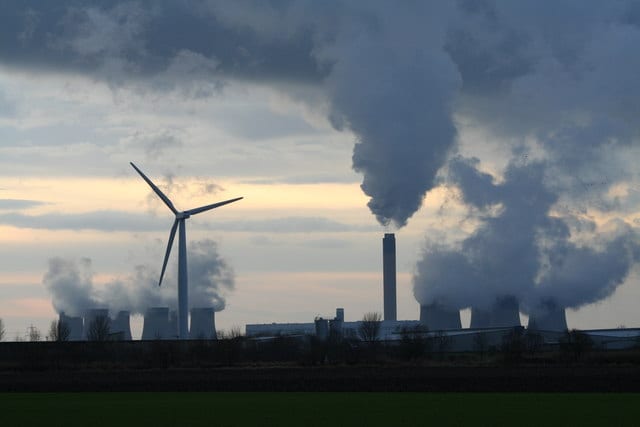‘Green boasts by the UK government are challenged by a parliamentary committee’s warning against trying to use political spin to justify a further watering down of emissions reduction targets the country is already in danger of failing to meet. Will we see a similar scenario in Australia from a government that doesn’t even pretend it is “green”?
London, 10 October – British government claims that it is the “greenest ever” and a prime mover in trying to ensure progress is made at next month’s climate talks in Warsaw have been undermined by a parliamentary committee report that says the UK is not on course to meet its legal obligations to cut carbon use.
The Environmental Audit Committee, which includes members of Parliament from all the major parties, warns that unless new policies are developed to improve energy efficiency, reduce emissions from transport and cut waste, the UK will miss its own targets to cut greenhouse gases. Some of the existing policies are failing and need to be revised, it says.
The report is published as some right-wing members of Prime Minister David Cameron’s Conservative party are trying to get the coalition government to cut subsidies for solar and wind power industries.
Cutting subsidies
As a justification for cutting subsidies, which would have the effect of limiting rises in fuel bills, they say recent climate science indicates that the Earth’s atmosphere is not heating as fast as predicted because the oceans are absorbing more solar energy.
But the committee believes that cutting subsidies would make an already bad situation worse, without further watering down its policies when it is already set to miss its targets to cut carbon emissions.
Joan Walley MP, who chairs the committee, said: “Some commentators are intent on spinning recent developments in climate science to suggest we can relax our efforts to cut carbon, in the mistaken belief that this would be better for our economy.
“It would be incredibly short-sighted to slacken
our carbon budgets now”
“Given that emissions are currently not falling fast enough to prevent a dangerous destabilisation of the global climate in the coming decades, it would be incredibly short-sighted to slacken our carbon budgets now.
“The UK’s leading climate scientists are saying loud and clear that there is no scientific case for watering down our long-term emissions reduction targets. And the recent IPCC [International Panel on Climate Change] report echoes that message. Policy-makers must listen.”
The report also looks at British progress towards meeting the existing and future carbon budgets that were imposed by the Climate Change Act 2008.
The legislation, passed with cross-government support, requires the government to set a series of five-year carbon budgets to restrict cumulative carbon emissions over the coming decades to safe levels, reducing emissions by at least 34% by 2020 and by at least 80% by 2050 (against a 1990 baseline).
This would enable Britain to reduce its greenhouse gas emissions enough to keep global temperatures below 2°C – provided that the rest of the world achieved similar reductions.
The committee says the UK’s current (2008-2012) and second (2013-2017) carbon budgets will easily be met because of the recession. But the UK is not on track to meet the third (2018-22) and fourth budgets (2023-2027) because not enough progress is being made on decarbonising transport, buildings and heat production.
The report warns that arrangements for managing and reporting progress against carbon budgets have not been working properly. The government has a carbon plan, part of which is to produce quarterly reports on progress, but these have not been published.
Cobbled together
Walley said: “The Government’s current carbon plan seems to have been cobbled together merely to meet the legal requirement under the Climate Change Act. The Government should be introducing innovative policies now to ensure that Britain is well on the way to going green by the middle of the 2020s.
“Ministers need to show much more vision now on how we can cut waste, improve our public transport and insulate more homes and businesses from rising fossil fuel costs.
“If we leave these changes for another 10 years it will become much more expensive to meet our climate change targets and we will be left behind by successful green countries like Germany.”
As an example of failing government policies, the committee cited an energy efficiency initiative called The Green Deal, whereby home owners could obtain finance to reduce fuel bills by insulating their homes and improve heating.
In March this year, government ministers estimated that 10,000 households would be signed up to the scheme by the end of the year, but to date only 132 have joined, and only one scheme has actually been completed. The committee’s report says that clearly something was wrong, and that householders needed more incentives to join the scheme.
Among the committee’s suggestion are that local authorities should be set targets in their own areas as part of getting everyone involved in saving the planet.
Source: Climate News Network. Reproduced with permission.










